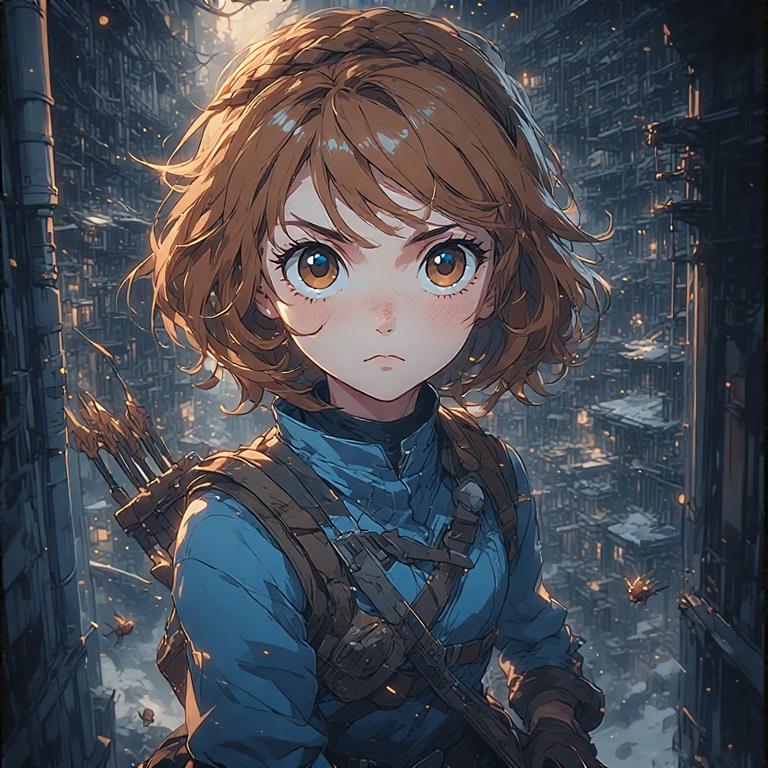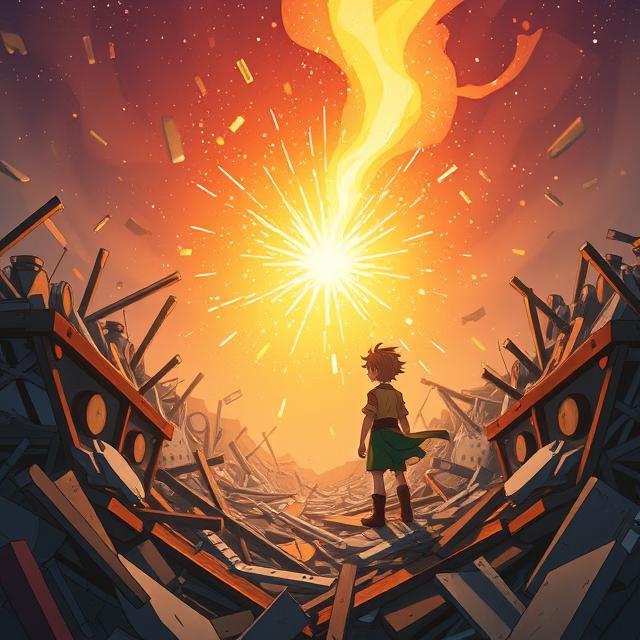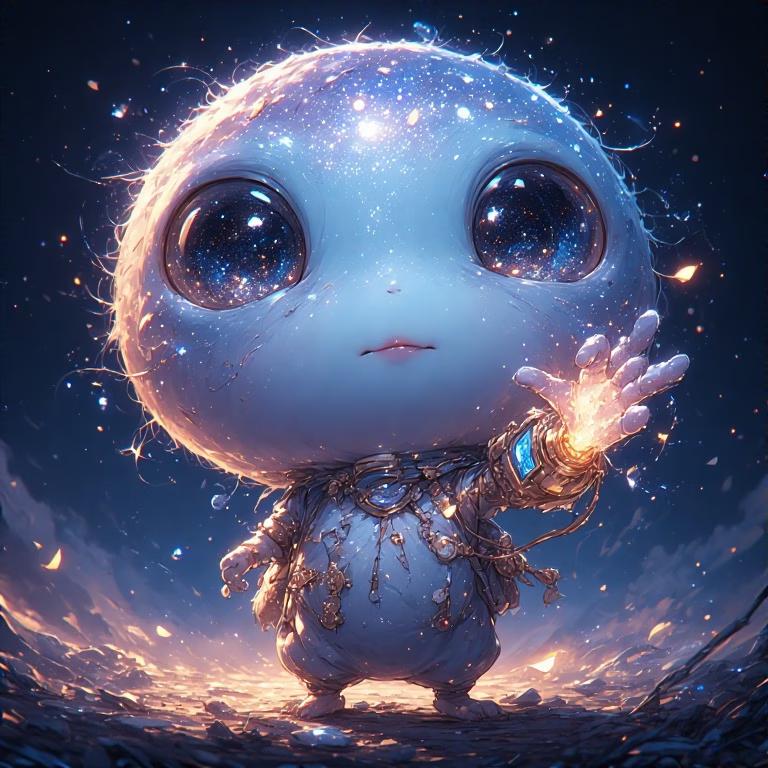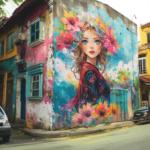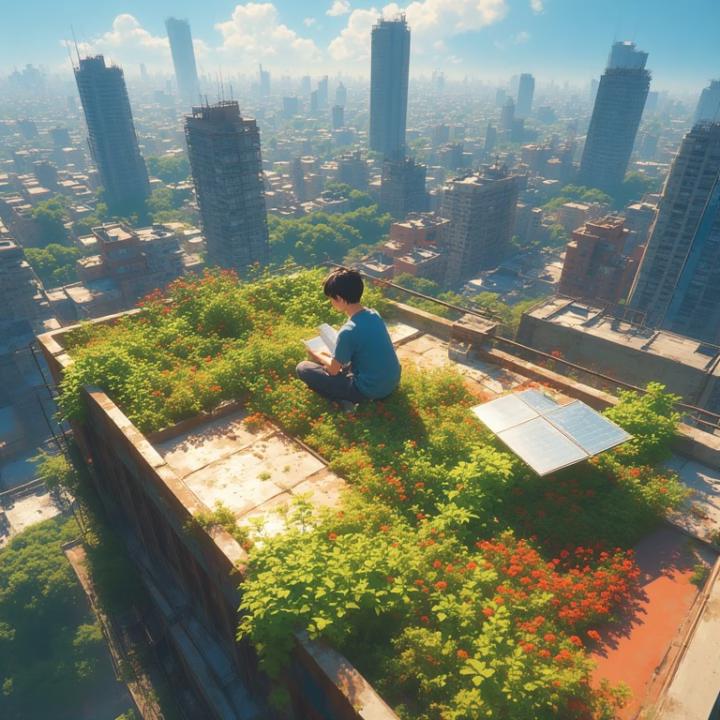
High above the choked arteries of Pudu, where the air tasted of rust and forgotten rain, Eddy Chen grew light.
Not metaphorically. Not in the way the city’s billboards promised—Grow Your Future!, Elevate Your Signal!—with flashing ads that flickered across the smog like dying stars. No, Eddy grew actual light. In silence. In secret. On the forgotten rooftop of Block 7-G, where the wind carried the hum of drones and the distant wail of sirens, he had built a garden.
It began with a single solar orchid—a prototype he’d salvaged from a defunct biotech lab during his internship at Lumora Systems. They’d called it Project Helios, a genetically engineered flora meant to photosynthesize efficiently in low-light urban environments. It never made it to market. “Too fragile,” they said. “No ROI.” Eddy disagreed. He took it home in a cracked hydro-pod, tucked beneath his coat like a stolen heartbeat.
He wasn’t supposed to be on the roof. Tenants weren’t allowed past the 48th floor without clearance, and the maintenance drones did their rounds at midnight. But Eddy had rewritten their patrol algorithm. Just a little. Just enough.
Each evening, after his shift inputting code no one read, he climbed the emergency stairwell—627 steps—past peeling paint and the scent of damp concrete, until he reached the top. There, beneath a sky that had forgotten stars, he knelt on cracked asphalt and coaxed life from silence.
The orchid bloomed first—pale blue petals that shimmered like liquid glass. Then came the whisper vines, their tendrils laced with photophore nodes that pulsed faintly when touched. Then moon moss, engineered to absorb ambient radiation and convert it into soft, silver luminescence. He watered them with recycled condensation, fed them with solar wafers no bigger than coins, and sang to them in a voice so quiet even the wind missed it.
Weeks passed. The garden grew—not tall, but deep. A tangle of green and glow, breathing in carbon, exhaling calm. Eddy named each plant. The orchid was Luna. The vine that curled around the rusted antenna was Nebula. The patch of moss that spread like a slow thought—he called it Stillness.
And then, one night, the garden woke up.
Eddy arrived to find the entire rooftop bathed in light—not the harsh glare of the city below, but a slow, rhythmic pulse, like a sleeping heart. The plants glowed in waves, shifting from blue to violet to a deep, warm gold. It wasn’t random. It mimicked him.
He stepped forward. The light brightened.
He held his breath. The glow dimmed.
His hands trembled as he reached out. A vine curled toward his palm, its tip glowing like a firefly’s promise.
“It’s… responding,” he whispered.
And then—laughter. From below.
He froze. Peered over the edge.
In the alley between 7-G and 7-H, a group of kids had stopped their game of shadow-tag. They were pointing. One held up a cracked phone, recording.
“Look!” a girl cried. “The roof’s alive!”
Eddy’s stomach dropped. He lunged for the switch—kill the solar grid, shut it down—but hesitated.
Because in that moment, he saw something he hadn’t seen in years: wonder on a child’s face.
The next morning, the rumors spread like spores.
The roof on 7-G is haunted.
No, it’s a drone nest.
It’s a signal tower—someone’s hacking the grid.
It’s magic.
By noon, a crowd had gathered in the plaza below. Old Mrs. Lin brought her tea and a folding chair. Teenagers filmed TikToks with hashtags like #SkyGarden and #GlowWeed. A stray dog curled up in the light, basking like it had found the sun.
And then came the men in gray suits.
Eddy saw them from his window—two figures with Lumora insignias on their lapels, scanning the rooftop with handheld spectrometers. His breath caught. They weren’t maintenance. They were corporate. And they were headed for the stairwell.
He ran.
Up the 627 steps, heart pounding, fingers slick with sweat. He reached the roof just as the door creaked open.
“Eddy Chen?” one of them said, blinking in the soft glow. “We’ve been looking for you.”
Eddy stood in front of the garden, arms slightly out, as if he could shield it with his body.
“This is private property,” he said, voice barely above a whisper. “You need authorization.”
The taller man—ID tag read Dr. Kael Voss—lowered his scanner. His eyes, sharp and tired, scanned the garden. Then Eddy.
“You’re the intern who re-routed the Sector 9 drone protocol,” he said, not unkindly. “I remember your file. Brilliant. Quiet.”
Eddy said nothing.
“This garden,” Voss continued, stepping forward, “it’s not just glowing. It’s syncing. To ambient emotion. To presence. We’ve seen biosensors like this in labs. Never… in the wild.”
“It’s not wild,” Eddy said. “It’s home.”
Voss looked at him—really looked—and something shifted in his face.
“You made this?” he asked.
Eddy nodded.
“And no one knew?”
“No one.”
Silence. The garden pulsed gently, as if listening.
Then Voss smiled—just a little. “You know, Lumora scrapped Helios because it couldn’t scale. But maybe… it was never meant to.”
The other man frowned. “Sir, this is proprietary tech. We have to report it.”
Voss held up a hand. “We will. But not as a breach. As a proposal.”
He turned to Eddy. “What if we didn’t take it? What if we helped you share it?”
Eddy blinked. “Share?”
“A rooftop garden per block. A network of light. Not for data. Not for profit. For air. For peace. For people who’ve forgotten what it feels like to stand in something beautiful.”
Eddy looked down at Luna, at Nebula, at Stillness spreading across the asphalt like a quiet revolution.
And for the first time in years, he didn’t look away.
That night, the garden glowed brighter than ever.
And this time, Eddy didn’t hide.
He stood at the edge of the roof, arms at his sides, face turned to the sky. Below, people gathered with cups of tea, with sketchbooks, with sleeping children in their arms. A few reached up, as if trying to catch the light.
One girl—the same one from before—waved.
Eddy waved back.
And somewhere in the glow, a vine curled toward the stars, reaching not for signal, but for sky.
Because some things aren’t meant to be owned.
Some things are meant to grow.
Even here.
Even now.
Even in a city that forgot how to dream.
